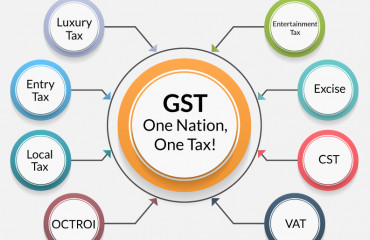
As the Indian government gears up for the Interim Budget announcement in February, leaders in the electric vehicle (EV) industry are optimistic about crucial reforms that could further help the sector's growth. The statements from prominent figures in the industry shed light on their expectations and aspirations for a budget that addresses key issues and supports the EV landscape.
As the Indian government gears up for the Interim Budget announcement in February, leaders in the electric vehicle (EV) industry are optimistic about crucial reforms that could further help the sector's growth. The statements from prominent figures in the industry shed light on their expectations and aspirations for a budget that addresses key issues and supports the EV landscape.
Arun Sreyas, Co-Founder of RACE Energy, emphasized the significance of the FAME scheme in promoting widespread EV adoption. Sreyas acknowledged the government's dedication to the cause but pointed out a notable disparity in GST rates between EVs sold with fixed batteries (taxed at 5%) and lithium-ion batteries used for swapping (taxed at 18% when sold separately). Anticipating the budget, Sreyas expressed hope for GST parity for EV batteries used in swapping, aligning them with the 5% bracket to fortify the EV landscape.
Avinash Sharma, Co-Founder & CEO of ElectricPe, highlighted the positive impact of favorable government policies on EV sales and production. Sharma called for an equitable landscape with subsidies and incentives across states and the center, expecting this to boost production, sales, usability, and support. He particularly emphasized the need to lower the GST rate on batteries from 18% to 5%, aligning battery swapping and subscription with traditional EVs. Sharma also advocated for a uniform 5% GST rate across states for charging, aiming to facilitate faster EV adoption and infrastructure development.
Chakravarthi C., Managing Director of Quantum Energy, stressed the industry's anticipation of crucial measures in the upcoming budget to sustain and enhance its growth. With the FAME II subsidy program set to expire in March 2024, stakeholders are collectively calling for its extension to ensure ongoing efforts to enhance the affordability and accessibility of EVs. Chakravarthi C. noted that an extension would align with the government's ambitious target of achieving 30% electric vehicles on Indian roads by 2030.
Moreover, industry leaders are hopeful for a significant reduction in the GST on lithium-ion battery packs and cells from 18% to 5%. This reduction is seen as a critical move to alleviate manufacturing costs, making EVs more competitively priced and encouraging consumer adoption.
Chakravarthi C. also emphasized the need for a standardized policy for the battery-swapping market, addressing concerns about compatibility challenges and safety issues due to the current fragmentation and varied battery types. A standardized policy specifying the type of battery pack, cell, dimensions, and connectors is expected to enhance safety and streamline charging infrastructure, fostering a more reliable and secure environment for EV users.
Unlock a world of Benefits! From insightful newsletters to real-time stock tracking, breaking news and a personalized newsfeed – it's all here, just a click away! Login Now!
Published: 23 Jan 2024, 06:56 PM IST
